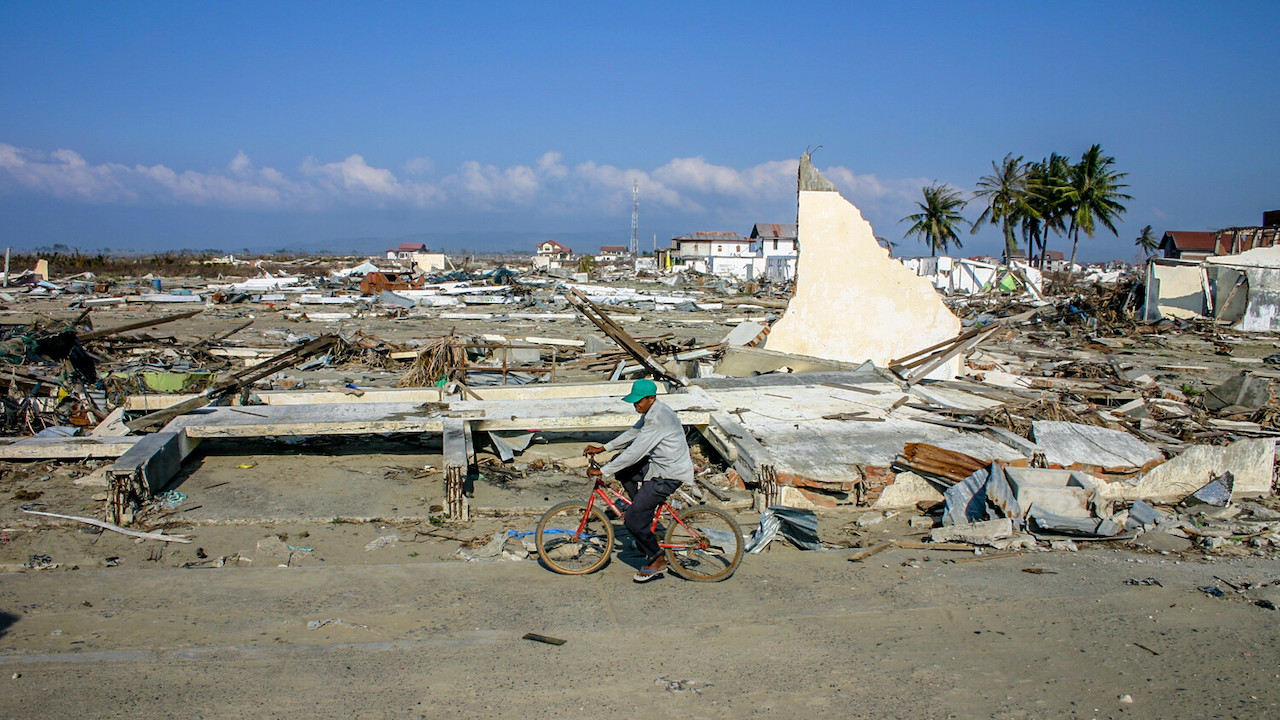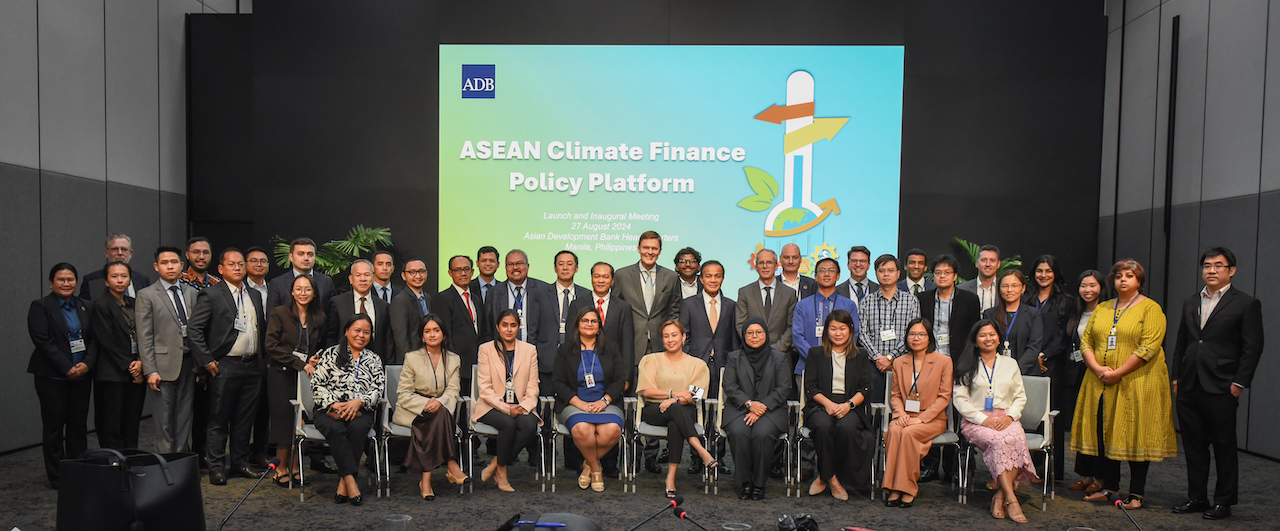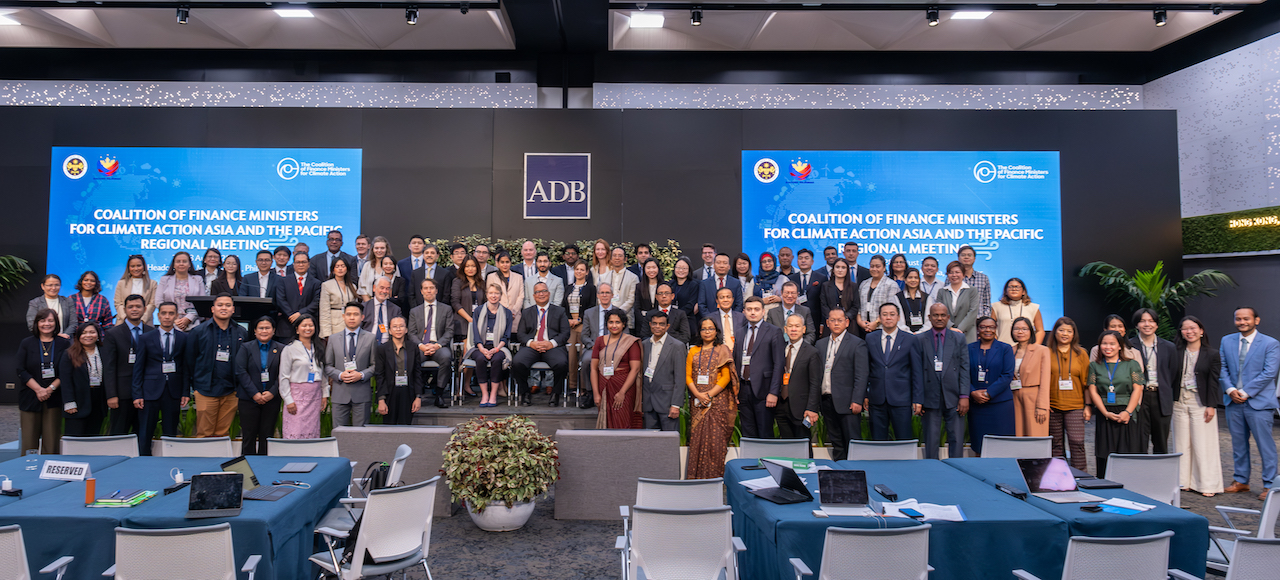
With Asia and the Pacific needing to invest an estimated $1.7 trillion per year in infrastructure through 2030 to meet both climate and development goals, it has become more urgent for ministries of finance across the region to enhance their role in climate action.
Speaking at the recently concluded regional meeting of the Coalition of Finance Ministers for Climate Action (CFMCA), Asian Development Bank (ADB) Vice-President for East and Southeast Asia and the Pacific Scott Morris underlined the importance of finance ministries’ role in accelerating climate action. “As finance ministry officials, you are at the epicenter of the climate crisis. Your decisions on public spending, taxation, and investment will determine the resilience of your economies and the well-being of citizens across Asia and the Pacific,” he said.
ASEAN Climate Finance Policy Platform launch
The coalition, a global alliance of fiscal and economic policymakers from over 90 countries, held their first meeting in Asia and the Pacific on 27–28 August at the ADB Headquarters in the Philippines. At the sidelines of the meeting, finance ministry officials from across Southeast Asia launched the ASEAN Climate Finance Policy Platform, a new initiative that will support finance ministries across Southeast Asia in taking a leading role in the battle against climate change.
The new platform, whose launch was facilitated by ADB, will help equip finance ministries with the tools and knowledge they need to drive and sustain climate initiatives. The platform will facilitate policy dialogues, knowledge exchange, and specialized training tailored to the needs of ASEAN finance ministries. By fostering collaboration and enhancing skills, the platform aims to ensure that new climate policies have long-lasting impact.
ADB President Masatsugu Asakawa announced plans for the platform at the 11th ASEAN Finance Ministers and Central Bank Governors’ Meeting in Luang Prabang in April. The aim is to provide a program of technical support to the ministries of finance in this region—to strengthen fiscal and financial systems in the context of a rapidly changing climate.
“The window for countries in Southeast Asia to meet their climate goals is closing, and finance ministries are uniquely positioned to make a significant impact,” said ADB Director General for Southeast Asia Winfried Wicklein. “This platform aims to strengthen the leadership of finance ministries in tackling climate change issues, enabling them to mobilize climate finance at scale and navigate climate risks to fiscal policies.”

The coalition’s meeting was convened as countries increasingly grapple with extreme weather events.
In May, temperatures soared to a blistering 49° Celcius in parts of Pakistan after the South Asian country experienced climate-induced typhoons and floods in 2022.
Last month, a passing typhoon left 13 dead and displaced over 600,000 in the Philippines. Typhoon Gaemi did not make a landfall in the Southeast Asian country, but it enhanced monsoon rains which dumped 12 inches of rain in parts of the country.
On 29 August, a powerful typhoon slammed into Japan, forcing authorities to issue a rare emergency warning the storm was expected to cause floods and landslides.

Balancing growth and climate resilience
During the meeting, participants discussed the role of finance ministries in the nationally determined contribution 2025 process, climate and nature finance, while examining the challenges of balancing growth and climate resilience.
Climate Bonds Initiative Chief Executive Sean Kidney noted the dilemma facing finance ministries of raising financing for climate action, while ensuring countries have the resources to meet their development agenda when it comes to education, health, jobs, and inclusive growth.
Noting the market for green bonds has grown to $5 trillion from just $1.3 billion 12 years ago, he said investors’ appetite for green bonds will continue to be strong as the world shifts to low-carbon economic models.
He urged countries to go green to attract private sector capital. “If we make this change, we will see investments in green of around $9 trillion to $10 trillion per year,” he said, noting capital will flow to emerging markets in Asia. “That's what we have to sell globally: the mix between fiscal opportunity, fiscal resilience, [and] growth. I think we can do that. And then we can create that future that our kids need, want, and deserve.”

